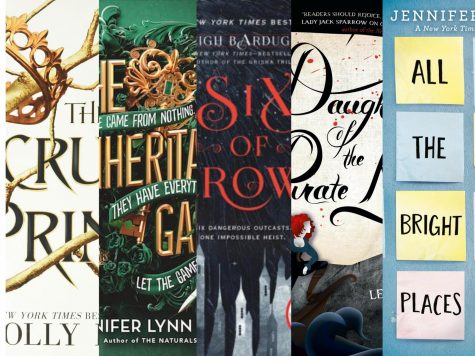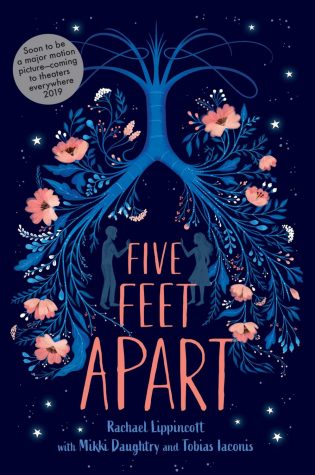The Alchemist: Masterpiece or Misrepresentation?
In Paulo Coelho’s The Alchemist, it is mentioned that lead, copper, and iron have their own Personal Legends to fulfill. Although, there isn’t a single female character whose Personal Legend is mentioned and emphasized upon. So why are minerals given more importance than female characters in this book?
Problematic messages can be found throughout the novel. It says, “He also tried to remember some good stories to relate as he sheared the sheep. Most of them he had read in books, but he would tell them as if they were from his personal experience. She would never know the difference, because she didn’t know how to read.” Bill Maglisceau, an English 9 Honors teacher, said, “That’s what guys do. They exaggerate things to get girls to like them.” How is that moral though when she isn’t able to differentiate between an exaggeration and truth due to her inability to read? Melissa Phillips-Reavis, another English 9 Honors teacher, maintained, “I don’t think he is doing anything. I’m sure a lot of guys make up stories to impress girls so it doesn’t really stand out to me that much.”
Further in the book it says, “You’ll remember that she never asked you to stay, because a woman of the desert knows that she must await her man.” Maglisceau thinks this could be taken two different ways. “This woman is a strong desert woman who is perfectly capable of living her life without a guy to take care of her and do things for her,” or, “Oh my gosh. This girl has no destiny. She has no goals. She’s just going to sit around and wait for her man.” Freshman Haleluya Worku distinctly interpreted it as the latter, “A woman of the desert should not await her man. Okay? She doesn’t need a man.”
Later it says, “He saw that Fatima’s eyes were filled with tears. ‘You’re crying?’ ‘I’m a woman of the desert,’ she said, averting her face. ‘But above all, I’m a woman.’ ” Phillips-Reavis comprehended the quote as, “Yes, I understand this is the way things are. I’m still a human being with emotions and it still makes me sad.” On the other hand Worku said, “Just because you show emotion or cry, it doesn’t mean it’s because you’re a woman. Everyone cries, and everyone shows emotion.”
In response to every female character’s lack of a Personal Legend, Phillips-Reavis said, “Fatima knows that she’s in a time period where it’s not her place to have those things so she doesn’t think about them as much. For her, it’s enough to be a woman of the desert or to wait for Santiago.” Worku thinks it’s discouraging, “It’s saying that only men have destinies and can do great things, but I say women can also do great things.” Phillips-Reavis said that “women were then, now, and forever powerful” but why is that power only ever used to further others’ achievements instead of their own?
Even more troubling is the objectification of women throughout the whole novel. Santiago’s father says, “Take to the fields, and someday you’ll learn that our countryside is the best, and our women are the most beautiful.” Later it says, “I also have Fatima. She is treasure greater than anything else I have won.” However, women aren’t possessions or treasure that can be won.
This book was required summer reading this year but as to whether it’ll be used next year, “I don’t know. I gotta talk to Mrs. Phillips- Reavis about it. We evaluate the summer program every year,” Maglisceau said.
Worku found it hard to find inspiration in the book, “I’m a girl and I want to read about women achieving things because one day I want to achieve something myself.” This book was supposed to help students realize their own goals, but how is that possible when there are no courageous women pursuing their own adventures for young girls to identify with?

Senior Khadija Ahmed is in her fourth year at The A-Blast. She has previously been a staff writer, Academics Editor and Managing Editor. In her free time,...







Sue Houston • Jul 27, 2020 at 5:56 am
Thank you for writing this article, Khadija. I am a 57 year old high school science teacher and I just read this book. I was left with vague feelings of unease about it. This book was recommended to me by a mentor as an inspirational tale. And yet, throughout the time I was reading it, my heart ached for the fact that I knew this sort of adventure was impossible for me, as a female. Women and girls cannot travel safely alone in most places in the world after all! Since I grew up in the 60’s and 70’s, the limitations put on women by the cultural teaching I absorbed are both subtle and deep. It has taken a few weeks for me to identify not only that I felt left out of the possibility that I could be a Santiago, but also I realize how totally demoralizing the female characters come across as role models too. The Gypsy woman is the only one with any power, and yet she is depicted as suspect. The culture cannot trust female intuition and vision. The merchant’s daughter is fairly helpless, her only strength being her beauty, but otherwise is uneducated. She has one option in life and that is to marry, and meanwhile, Santiago never shows up. What was that like for her if she actually had some interest in him? The third woman, Fatima, seems more capable and strong, and yet she too is treated as somewhat of an appendage for the male adventurer. Her most admirable quality after her beauty seems to be her willingness to wait for her man, perhaps for the rest of her life, if he is lost in the desert. The archetype of the ever faithful and undemanding woman is powerfully disempowering as a role model for modern girls and women.
All that said, I do hope your high school is now looking for summer reading books that are written from other perspectives besides that of the male adventurer. The patriarchal sea we are swimming in is difficult to notice, especially for those of us who have been swimming in it so long, and I bet that included many of the teachers, male and female, who are choosing your summer reads. It takes effort to wake up and notice how this system perpetuates itself. I so admire you Khadija, with your fresh eyes on all this and your willingness to speak up. Your article helped me to see this all mor clearly. I hope you go out and continue to change the world for the better with your voice!
Bill Maglisceau • Oct 4, 2017 at 7:01 am
Nice article Mim! I wish you brought this topic up in the Lecture Hall seminar – keep up the great work!